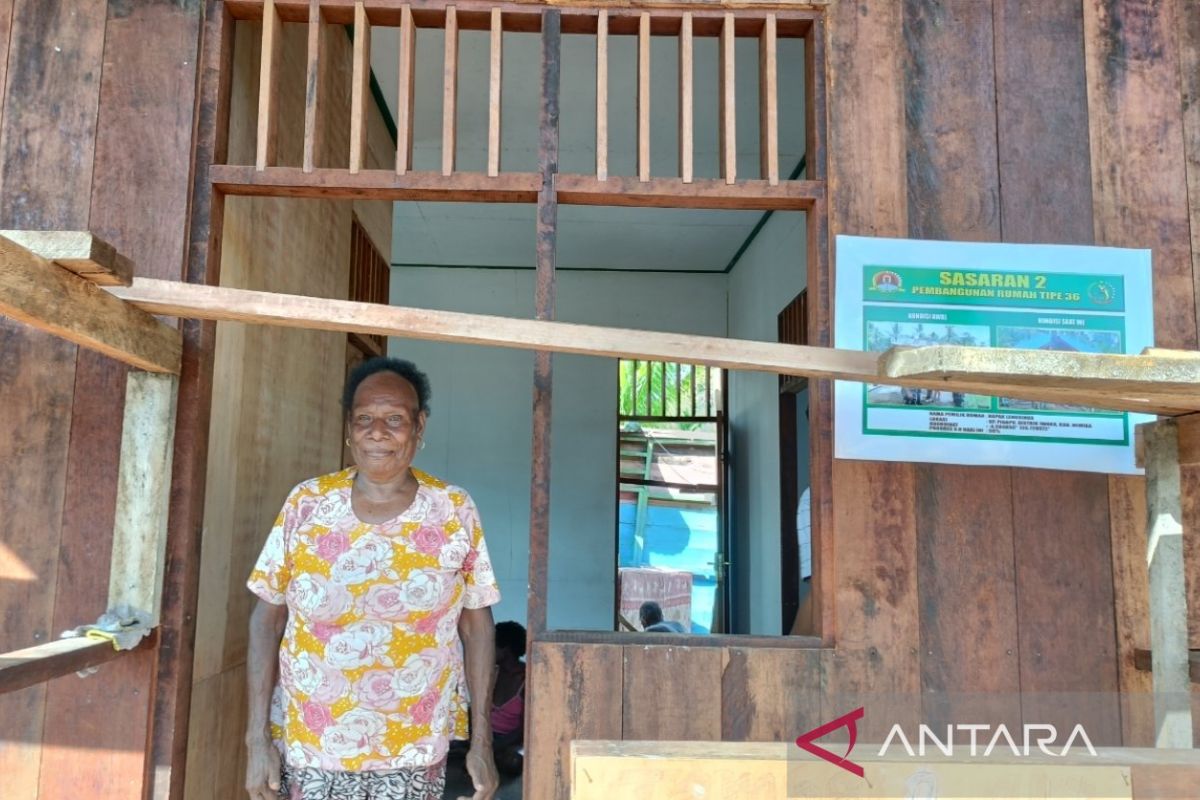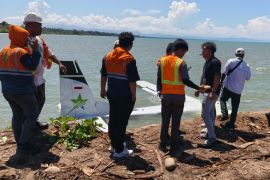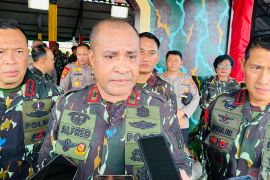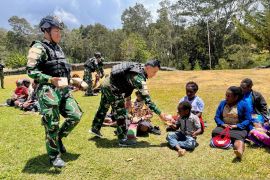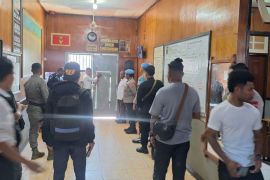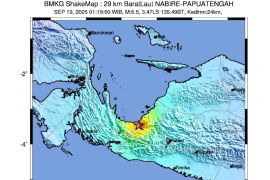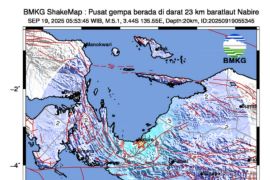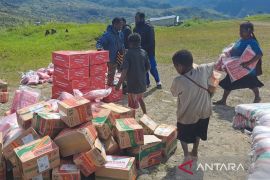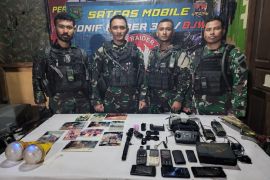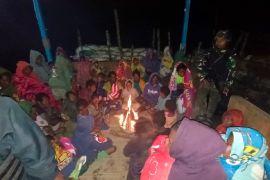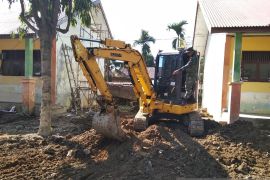Her hope for better living conditions has been rekindled by the Indonesian National Armed Forces (TNI) through a special community service program.
Veronica is one of the five residents of Pigapu village, Mimika district, Central Papua, who will soon walk into new homes thanks to the initiative of soldiers from the Mimika/1710 Military District Command (Kodim).
Veronica, whose husband passed away seven years ago, has five children and two grandchildren.
To meet her daily needs, she sells vegetables and coconuts at Baru Market in Timika, the capital of Mimika, about half an hour away from the village.
Getting to the market is not easy, and she often has to hitch a ride on a container truck.
Her home is old, tilting, and barely inhabitable. Its roof is an unreliable shield against the weather: it easily allows rainwater in, which means, she has to dry her bed in the sun frequently.
After evaluating her home, representatives from Mimika Kodim put her on the list of beneficiaries of the special community service program.
When the Mimika Kodim promised another Pigapu resident, Elisabeth Kaukayah, a new home, it seemed like her prayers had been answered.
For Elisabeth and her family, who belong to the economically disadvantaged segment, a new, safe, and properly built home was a dream far out of reach.
The home they owned had iron-sheet walls, a makeshift roof, and floors crafted from tree bark.
There were days when they had to scavenge for lumber to reinforce the house’s pillars, hoping it would hold up long enough to see another day.
Rainwater seepage only added to their difficulties, leading Elisabeth to compare her house to a chicken coop.
Now, the home she was promised is 90 percent complete -- and she has moved in already, saying she is deeply and sincerely grateful to the Indonesian Army.
Going by this, it is safe to say that the social initiative -- part of the 124th batch of a program called “TNI Manunggal Masuk Desa” (TMMD) -- reflects the state’s concern for its citizens’ well-being.
In particular, in ensuring they have a comfortable and decent place to call home.
Broader impact
The government of Mimika district has described the TMMD program as a crucial initiative that aims to speed up the development of underserved and isolated areas.
The program is not only offering help with construction activities, but also building awareness about the importance of uniting and working together to achieve the common good.
By promoting a higher level of community cohesiveness, the program is expected to drive local residents and governments to achieve significant progress and become self-reliant.
As a region within a new province, Mimika district is home to several difficult-to-access areas, thus requiring external stimuli to grow.
The TMMD program is expected to directly help residents bring about progress.
To build self-reliance, the Mimika government has urged the residents of Pigapu village to fully utilize the TMMD program as an opportunity to collaborate in accelerating local development.
The district government has also expressed its readiness to cooperate with the Mimika Kodim to realize equitable development across Mimika, particularly in outskirt areas bordering other districts.
Lt. Col Slamet Wijaya, commander of the Mimika Kodim, said that 150 soldiers from multiple units have been roped in for this year’s TMMD projects. They are being helped by local residents.
He further said that the projects include the development of five stilt houses, the revitalization of a Catholic church, and the construction of five bridges.
Additionally, the military aims to build five wells, set up public toilets, plant trees across two hectares of land, and tap into the potential of 2.5 hectares of idle land to boost food security.
Besides physical development, the TMMD program is also focusing on building community capacity across several key areas.
It is offering residents guidance on aspects such as making the most of their sea catch, maintaining their health, preventing childhood chronic malnutrition, and understanding the dangers of drug abuse.
It is also spreading awareness about the legal consequences of domestic violence.
The program, which began on May 6, 2025, will run until June 4. So far, the construction of the five houses in Pigapu village is about 70 percent complete.
The TMMD program has given Indonesian soldiers a chance to demonstrate their commitment to public service and national development.
Through the initiative, the military hopes to improve people’s welfare and support the government’s push for more equitable development in remote areas.
Strong teamwork between the TNI, regional governments, and local communities is key to making the program a success.
Related news: Ministry, TNI collaborate to accelerate food self-sufficiency
Translator: Ardiles L, Tegar Nurfitra
Editor: Primayanti
Copyright © ANTARA 2025
